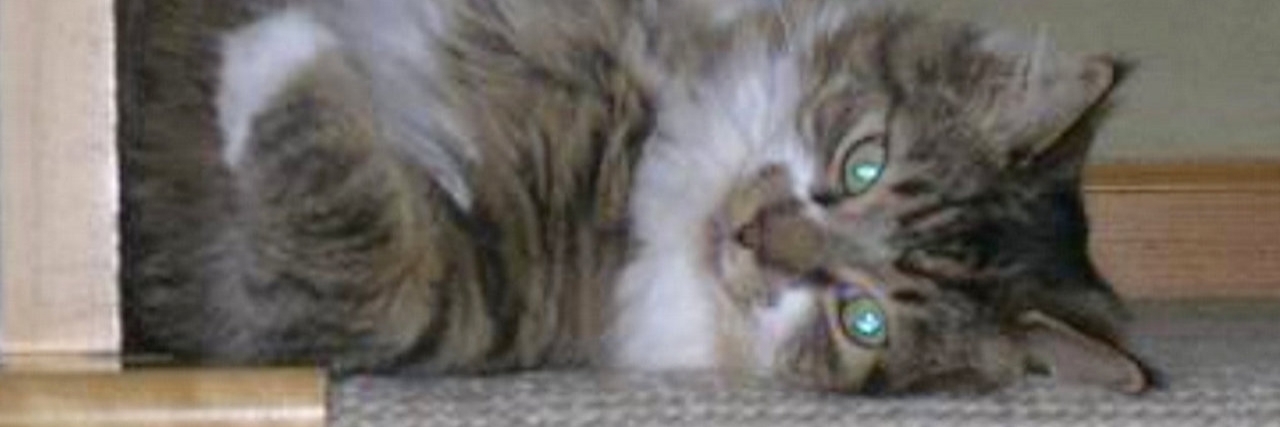Last October, my family had to make the heartbreaking decision to put down one of our cats. He was 15, and his health had taken a sudden and dramatic decline, but it was still extremely hard. If you’ve ever lost a pet, you know the pain. But it’s impossible to explain to someone who hasn’t experienced it. This cat in particular, Charlie Brown, had been with me since I was 8 years old. And he’d helped me through a lot in those years.
You see, when we adopted him, I was going through what would turn out to be probably the hardest period of my life. I was struggling in school, somewhat academically, but mainly socially. I had very few friends and plenty of people who disliked me.
I hate to use the word “bully,” but I was bullied during this point. I hated going to school more than anything. While I never lied, I’d use any excuse to avoid school. A tiny sore throat? I need to stay home. What if it’s strep? Stubbed my toe? Well, it may be broken, and I should stay home. It felt like whatever I did would make someone upset. I got into trouble constantly, but I’d often have a meltdown when disciplined. I wasn’t diagnosed with Asperger’s at the time, so this just made me look more rebellious. It was a very painful time.
But Charlie helped me in a way humans couldn’t. Just like me, he wasn’t aware of those subtle social cues. He wasn’t aware of the nuances that were so foreign to me. He, and the other cats we had at the time, didn’t understand any of that. They just knew that I loved them. And because of that, they loved me.
When I was upset, they provided me the support I desperately needed but couldn’t get anywhere else. Charlie, in particular, was a very sensitive cat. He always knew when you were upset, and he’d do whatever it took to make you feel better. Your frustration became his, and he would do everything in his fluffy power to fix it.
I think cats helped me socially as well. From a young age (I’ve had cats in my life since I was born), I understood how important body language is in cats. Cats couldn’t say when they were upset, so I became very good at reading them. I ended up understanding a cat’s body language long before human body language. In fact, I still think of myself as a bit of an expert on a cat’s body language. It took a lot longer to understand human body language, and, at times, I’m still learning. But knowing how important body language is to cats helped me apply it to people.
I think I just relate to cats for a lot of reasons. One being that cats are often misunderstood. They’re not as openly affectionate as dogs, but that doesn’t mean they don’t love you. They just show it in their own time.
They also like the security of a schedule, much like myself. They’re sensitive to loud noises and can get overwhelmed easily. When they do get overstimulated, they can lash out. It’s a familiar scenario to most cat owners: You’re petting your cat, they’re all purry and lovely — and then bam. Your cat clamps down hard on your hand with their teeth. It may seem like they’re simply being mean, but that’s not it. They, like me, get overwhelmed and overstimulated. It’s almost like a kitty meltdown. They can’t tell you to stop, so they react in a way to make sure you do, which is something I did as a child.
I spent a great deal of my childhood pretending to be a cat. There were plenty of times my parents would take me to the mall or the movies and suddenly lose sight of me, only to find me crawling around the floor and meowing. It was so calming to pretend to be a cat. It brought me into a world I understood and felt safe in.
Some people think animals, especially cats, are so complicated and “unpredictable.” I can’t even begin to comprehend that. Cats are so much simpler, and they’re very predictable if you take the time to get to know them. They’re a welcome relief to the confusion and frustration of people. They don’t have ulterior motives, they won’t talk behind your back and they won’t care if you have no human friends.
They also don’t blindly love you like dogs. You need to earn a cat’s love. And when you do, it’s a love like nothing else.
Imagine someone Googling how to help you cope with your (or a loved one’s) diagnosis. Write the article you’d want them to find. If you’d like to participate, please check out our Submit a Story page for more about our submission guidelines.

